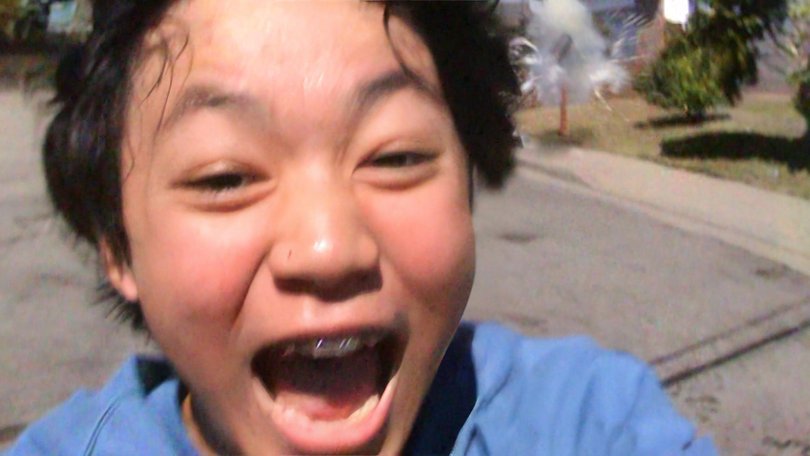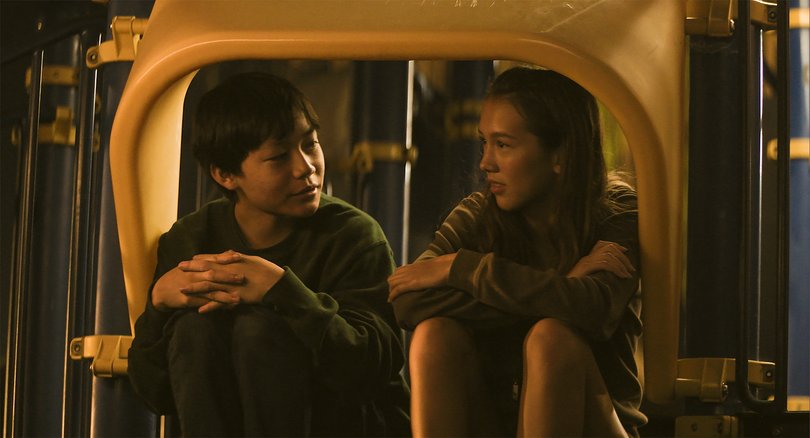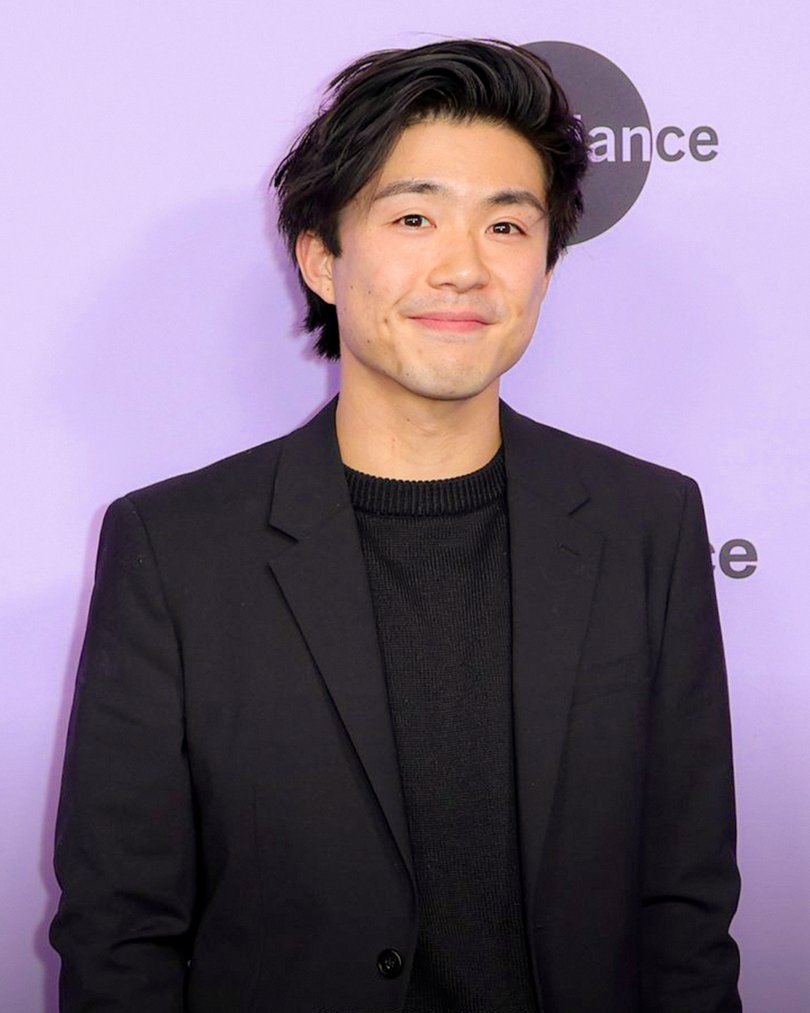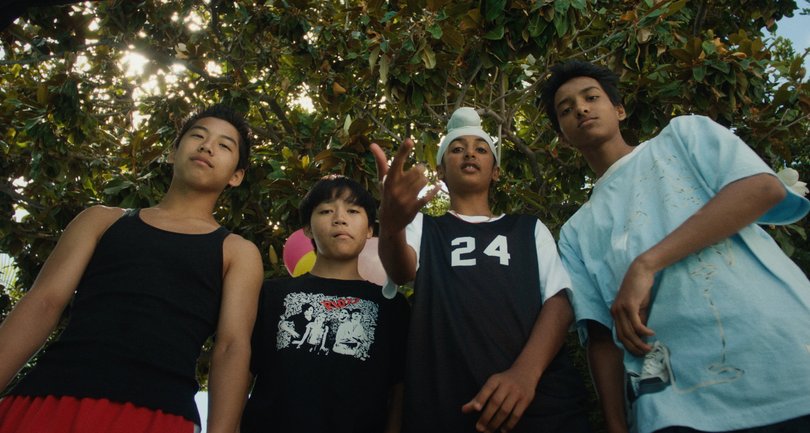Oscar nominee Sean Wang on making angsty coming-of-age drama Didi

As a kid, Sean Wang loved Stand By Me. The Rob Reiner film is a classic coming-of-age tale about four boys on the cusp of the angstiest of teen years who discover a body while out in the woods.
The corpse is a plot point but Stand By Me is really about friendship and navigating that transitional moment in your life when you don’t quite know who you are or how you fit into the world.
Wang grew up not in a small town in Oregon but in Fremont, California, a suburb 45 minutes away from San Francisco. He wasn’t a child of the mid-20th century, like the characters of Stand By Me, but shaped by the late 2000s, an era of MySpace, instant messaging and the early days of YouTube.
Sign up to The Nightly's newsletters.
Get the first look at the digital newspaper, curated daily stories and breaking headlines delivered to your inbox.
By continuing you agree to our Terms and Privacy Policy.But time and distance changes little of that experience of that age.
When it came to making his first feature film, drawing from the memories of his younger self was a no-brainer. Didi is the result of that creative endeavour, a tender, funny and resonant story about Chris, a 13-year-old Taiwanese-American kid trying to make friends, connect with his crush and be thought of as cool.
Wang only just turned 30 and has already been nominated for an Oscar for his short, Nai Nai and Wai Po, so when he recalled moving away from home in his twenties and starting to become a filmmaker, it wasn’t that long ago.
As he was exposed to people outside his childhood bubble, he discovered other people had a different upbringing to him.

“(They) grew up in places that were way different to where I grew up, and seeing and realising there are certain aspects of my childhood that are unique to the culture of growing up in a multicultural community, that’s not very common,” he told The Nightly.
That’s when Wang realised that there were things about his experience that would be exciting to write about that were fresh and different.
There’s specificity to Didi that many audiences won’t have seen before. The grandmother in his film is melodramatic and catastrophising in a way that is familiar to a lot of people with Asian nans, but maybe not to others.
There’s a small but lingering shot of when three non-Asian boys enter his family home and don’t take their shoes off. Or how Chris tells these hopefully new friends that he’s only half-Asian (a lie), so eager is he to downplay his “otherness” — it’s an instinct many kids from diaspora communities will recognise.
Those moments are unique but also universal. It all feeds into the “shame and embarrassment” of that age, as Wang puts it.
Wang is quick to emphasise that Chris is not his onscreen avatar. “He’s not me, but there are lots of personal things that I’m bringing to it,” he said. “It’s not autobiographical but it is very personal. I’m not trying to run away from the fact it’s inspired by my life, it’s for sure inspired by certain elements of it.

“I see parts of myself in every character. Chris is the most obvious because he is the closest to me in the sense that, on the surface, he skates and I skated, and he got into making videos, I was making little skate videos, filming my friends.
“As a character, Chris is probably a little more reserved and lacks a little bit more self-awareness than I think I did at that age.
“But I did feel a lot of similar things. I think a lot of 13-year-olds feel the way Chris does, which is you’re trying to fit in but the more you try, the more you stand out. You try to say something cool and everyone is like, ‘What did you just say?’”
In that fidelity to creating a world that felt real to Wang’s experience of growing up, writing teen characters that actually sound like kids and not Hollywood scriptwriters talking through kids, Didi features scenarios and lines of dialogue that might jar.
Which is when you remember that at that age, no one is that sensitive to the people around them.
“A lot of 13-year-olds are unlikeable at times, but it’s not because you’re trying to be an a**ehole,” Wang said. “The hope with Chris is that you see that he is hyper-vulnerable but also shielded. Underneath all that angst is a very sensitive, tender, emotional boy who’s just trying to figure things out.”

Some of the most hurtful things Chris says in the film are to his family, but especially his mother, Chungsing, played by the amazing screen legend, Joan Chen.
The heart of Didi is that fractious but unbreakable relationship, culminating in a moment of deep generosity and catharsis.
That wasn’t Wang’s original intention. He wanted to make a film in the vein of Stand By Me or Superbad, where the parents were not really part of the story.
“But the more I wrote, I was like, ‘something is missing’,” he recounted. “What was missing is I wanted to write about my mum. I think that’s what the movie was telling me, which sounds a little pretentious.”
He resisted it at first, because he’d made short films that all became about his mum, but one day, he gave himself permission to free-write and see where it ended up.
“For the first time writing this movie, it felt really alive,” he said. “It was, ‘Oh, that’s what the movie is’. It’s a mother-son story encased in the trappings of a movie about adolescence. It’s going to start as a movie about friendship and end as a movie about family.”
His mother has seen Didi multiple times.
“She loved it. She’ll text me and be like, ‘I’m at the theatre, watching it by myself, it’s my ninth time’.”

